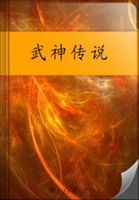We have said in our days of dreaming, "Injustice and wrong are a seeming; pain is a shadow. Our God, He is real, He who made all things, and He only is Love."
Now life takes us by the neck and shows us a few other things,--new-made graves with the red sand flying about them; eyes that we love with the worms eating them; evil men walking sleek and fat, the whole terrible hurly-burly of the thing called life,--and she says, "What do you think of these?" We dare not say "Nothing." We feel them; they are very real. But we try to lay our hands about and feel that other thing we felt before. In the dark night in the fuel-room we cry to our Beautiful dream-god: "Oh, let us come near you, and lay our head against your feet. Now in our hour of need be near us." But He is not there; He is gone away. The old questioning devil is there.
We must have been awakened sooner or later. The imagination cannot always triumph over reality, the desire over truth. We must have been awakened.
If it was done a little sharply, what matter? It was done thoroughly, and it had to be done.
VII.
And a new life begins for us--a new time, a life as cold as that of a man who sits on the pinnacle of an iceberg and sees the glittering crystals all about him. The old looks indeed like a long hot delirium, peopled with phantasies. The new is cold enough.
Now we have no God. We have had two: the old God that our fathers handed down to us, that we hated, and never liked: the new one that we made for ourselves, that we loved; but now he has flitted away from us, and we see what he was made of--the shadow of our highest ideal, crowned and throned.
Now we have no God.
"The fool hath said in his heart, There is no God." It may be so. Most things said or written have been the work of fools.
This thing is certain--he is a fool who says, "No man hath said in his heart, There is no God."
It has been said many thousand times in hearts with profound bitterness of earnest faith.
We do not cry and weep: we sit down with cold eyes and look at the world.
We are not miserable. Why should we be? We eat and drink, and sleep all night; but the dead are not colder.
And we say it slowly, but without sighing, "Yes, we see it now; there is no God."
And, we add, growing a little colder yet. "There is no justice. The ox dies in the yoke, beneath its master's whip; it turns its anguish-filled eyes on the sunlight, but there is no sign of recompense to be made it.
The black man is shot like a dog, and it goes well with the shooter. The innocent are accused and the accuser triumphs. If you will take the trouble to scratch the surface anywhere, you will see under the skin a sentient being writhing in impotent anguish."
And, we say further, and our heart is as the heart of the dead for coldness, "There is no order: all things are driven about by a blind chance."
What a soul drinks in with its mother's milk will not leave it in a day.
From our earliest hour we have been taught that the thought of the heart, the shaping of the rain-cloud, the amount of wool that grows on a sheep's back, the length of a drought, and the growing of the corn, depend on nothing that moves immutable, at the heart of all things; but on the changeable will of a changeable being, whom our prayers can alter. To us, from the beginning, nature has been but a poor plastic thing, to be toyed with this way or that, as man happens to please his deity or not; to go to church or not; to say his prayers right or not; to travel on a Sunday or not. Was it possible for us in an instant to see Nature as she is--the flowing vestment of an unchanging reality? When the soul breaks free from the arms of a superstition, bits of the claws and talons break themselves off in him. It is not the work of a day to squeeze them out.
And so, for us, the human-like driver and guide being gone, all existence, as we look out at it with our chilled, wondering eyes, is an aimless rise and swell of shifting waters. In all that weltering chaos we can see no spot so large as a man's hand on which we may plant our foot.
Whether a man believes in a human-like God or no is a small thing. Whether he looks into the mental and physical world and sees no relation between cause and effect, no order, but a blind chance sporting, this is the mightiest fact that can be recorded in any spiritual existence. It were almost a mercy to cut his throat, if indeed he does not do it for himself.
We, however, do not cut our throats. To do so would imply some desire and feeling, and we have no desire and no feeling; we are only cold. We do not wish to live, and we do not wish to die. One day a snake curls itself round the waist of a Kaffer woman. We take it in our hand, swing it round and round, and fling it on the ground--dead. Every one looks at us with eyes of admiration. We almost laugh. Is it wonderful to risk that for which we care nothing?
In truth, nothing matters. This dirty little world full of confusion, and the blue rag, stretched overhead for a sky, is so low we could touch it with our hand.
Existence is a great pot, and the old Fate who stirs it round cares nothing what rises to the top and what goes down, and laughs when the bubbles burst. And we do not care. Let it boil about. Why should we trouble ourselves? Nevertheless the physical sensations are real. Hunger hurts, and thirst, therefore we eat and drink: inaction pains us, therefore we work like galley-slaves. No one demands it, but we set ourselves to build a great dam in red sand beyond the graves. In the grey dawn before the sheep are let out we work at it. All day, while the young ostriches we tend feed about us, we work on through the fiercest heat. The people wonder what new spirit has seized us now. They do not know we are working for life. We bear the greatest stones, and feel a satisfaction when we stagger under them, and are hurt by a pang that shoots through our chest.
While we eat our dinner we carry on baskets full of earth, as though the devil drove us. The Kaffer servants have a story that at night a witch and two white oxen come to help us. No wall, they say, could grow so quickly under one man's hands.

